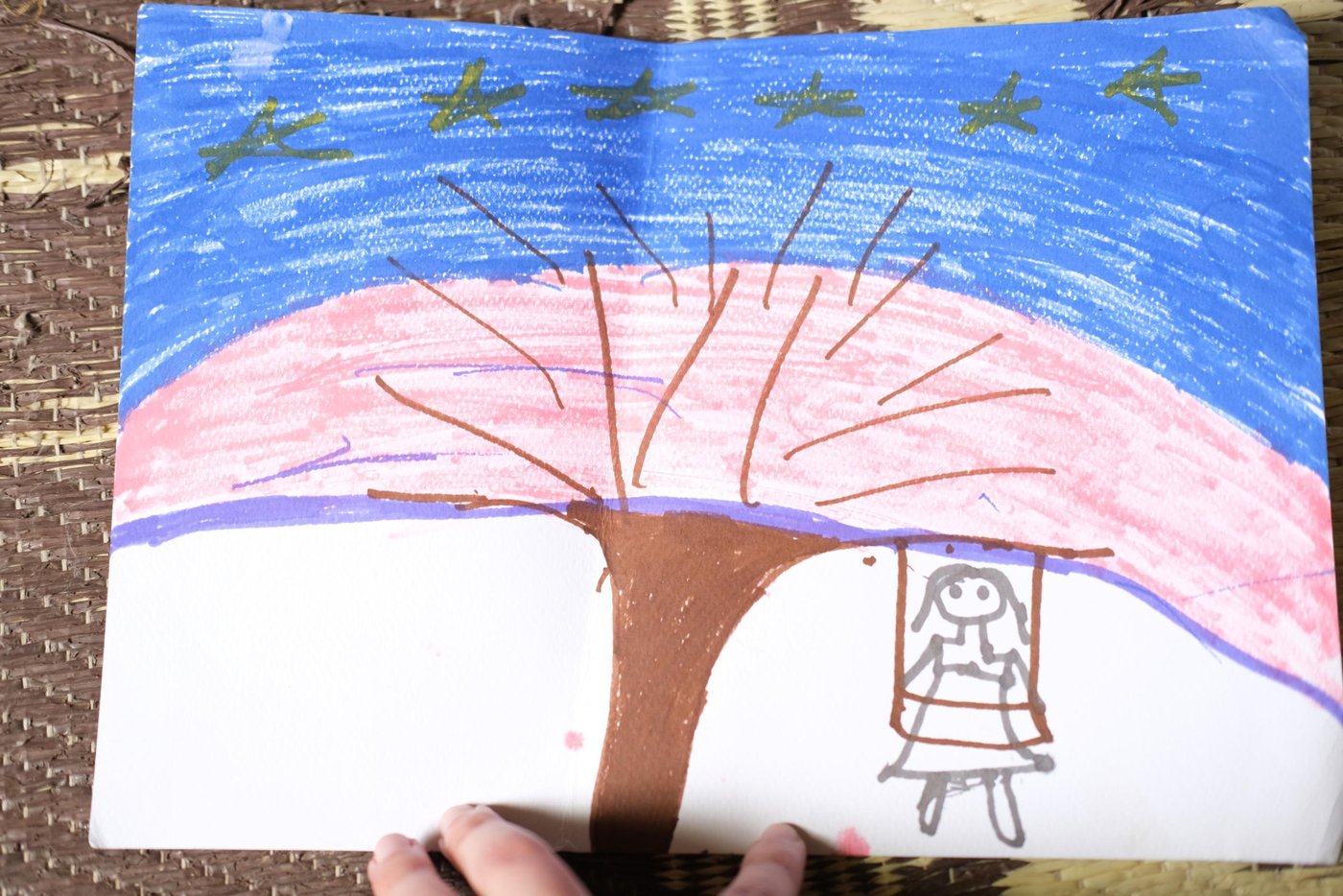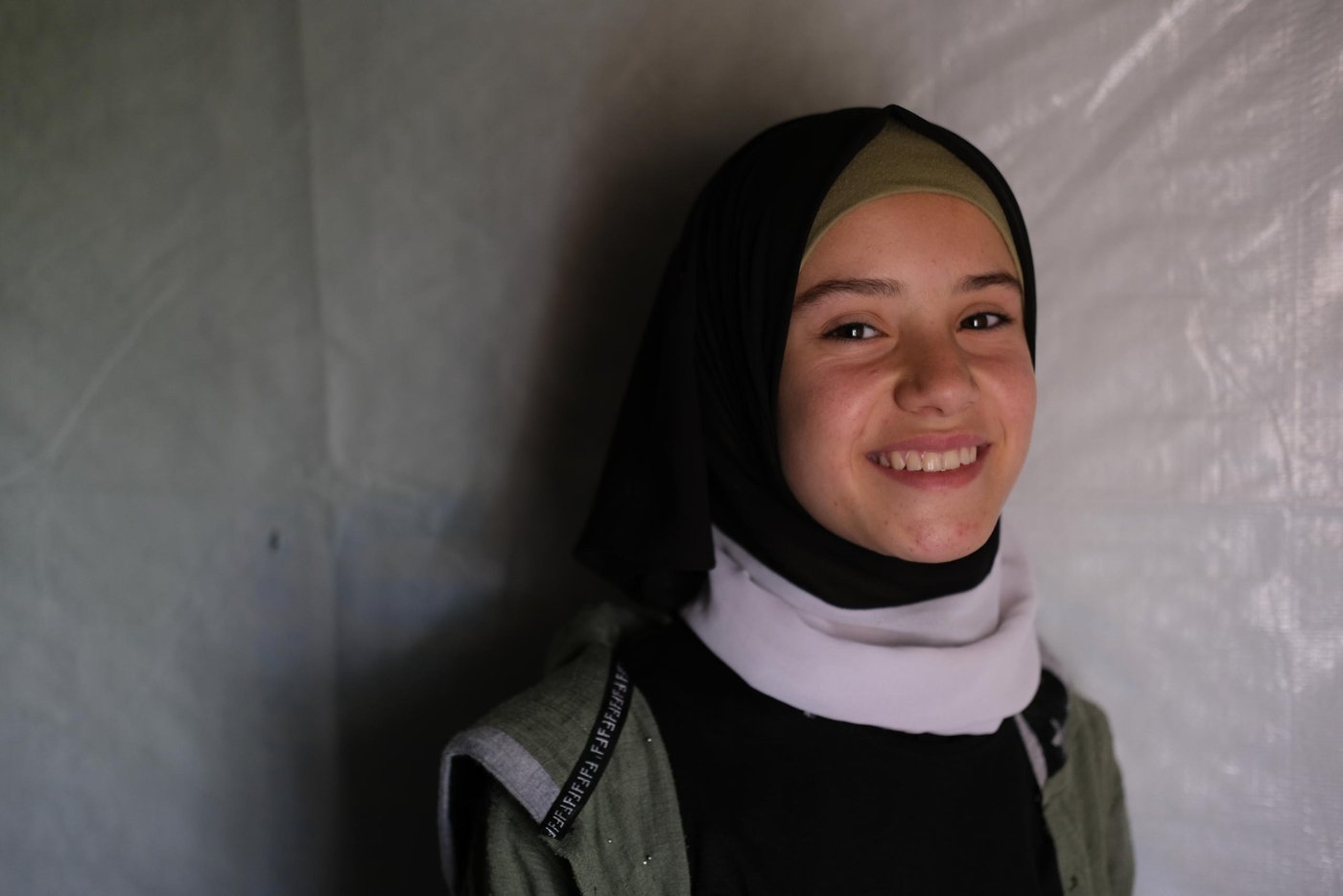When the coronavirus hit Lebanon, there were widespread job losses. Khitam’s parents couldn’t make ends meet anymore, so she dropped out of school to help provide for the family. Now, finally, Khitam and her siblings will all be learning at the same time for the first time in their lives.
NRC works to support refugees and displaced people in over 30 countries around the world, including Lebanon. Support our work today
As is the case for many refugee and poor Lebanese families in Lebanon, the unprecedented economic crisis and the impact of the coronavirus pandemic have pushed Khitam’s family deeper into poverty. A recent report on the links between food insecurity and child labour (see below) confirms that many children are becoming breadwinners for their families, because parents simply see no other option.
“Before corona we used to go to school”, says Khitam. “My dad used to work more often at that time but since corona everything is closed and he can’t find work anymore, so we had to help and I couldn’t go to school anymore.”
Hide and seek provides an escape
Khitam helps harvest peas on the land of their Lebanese neighbours, where her father also works as a casual labourer. She works from 6 am until noon every day.
Winter is the hardest season to work in, because it gets very cold and sometimes freezesKhitam, 13
“Winter is the hardest season to work in, because it gets very cold and sometimes freezes,” says Khitam. “The mud makes it impossible for us to work most of the time. I also get sick. In summer, the burning sun makes it very hard to work.”
The friendship Khitam built with one of the other girls who works in the fields brings her some solace.
“My best friend is the girl I work with in the field. She is very nice and tells me everything. I like working with her. I hope we never get separated and we get to work together all the time”, says Khitam.
“My favourite game is hide and seek and I am very good at it. We play it in the field when we finish work. My friend closes her eyes and I run and hide under the grass.”
Learning cannot happen without wellbeing
Khitam and her three siblings have recently enrolled in NRC’s Basic Literacy and Numeracy (BLN) programme. These classes are designed for children aged 10 to 14 who have never been to school before or do not have the skills needed to enrol in a mainstream Lebanese school.
The educational support provided to the children is coupled to NRC’s Better Learning Programme (BLP). We also engage with parents to raise awareness about the importance of education, children’s right to education, and the education pathways that are available from the non-formal programmes provided by NRC and other NGOs to formal education in Lebanese schools.

Better Learning Programme (BLP)
We know that learning simply cannot happen without wellbeing. Therefore, NRC ensures that children who have experienced unimaginable trauma are equipped with the skills, knowledge and support they need to overcome the memories that haunt them.
Teaching staff and caregivers also need support to ensure their own wellbeing. It’s essential that mental health and psychosocial support programmes are integrated into education responses to address the ever-increasing needs of displaced and conflict-affected communities across the Middle East.
Helping students in challenging times
In addition to education, Khitam and her siblings will receive books, stationery, data recharge cards and hygiene items. These items would otherwise be unaffordable for Khitam’s family and many other refugee and poor Lebanese families in Lebanon today.
Hadeel Sleiman, one of NRC Lebanon’s education staff in the area where Khitam lives, explains how teachers and education staff are assisting students during these challenging times.
“Our education team follows up daily with all the students. Team members download the students’ homework, correct it, send encouraging voice notes and complete tracking sheets for each of the 30 students that each individual is responsible for,” says Hadeel.
“If additional support is needed, students are invited to our education centre to receive in-person help. At the end of each cycle the students take a test to measure their progress so we can adjust the support we provide as needed.”
With the support of Germany through the German Development Bank, KfW, children in protracted displacement in Lebanon can enjoy their right to education.


